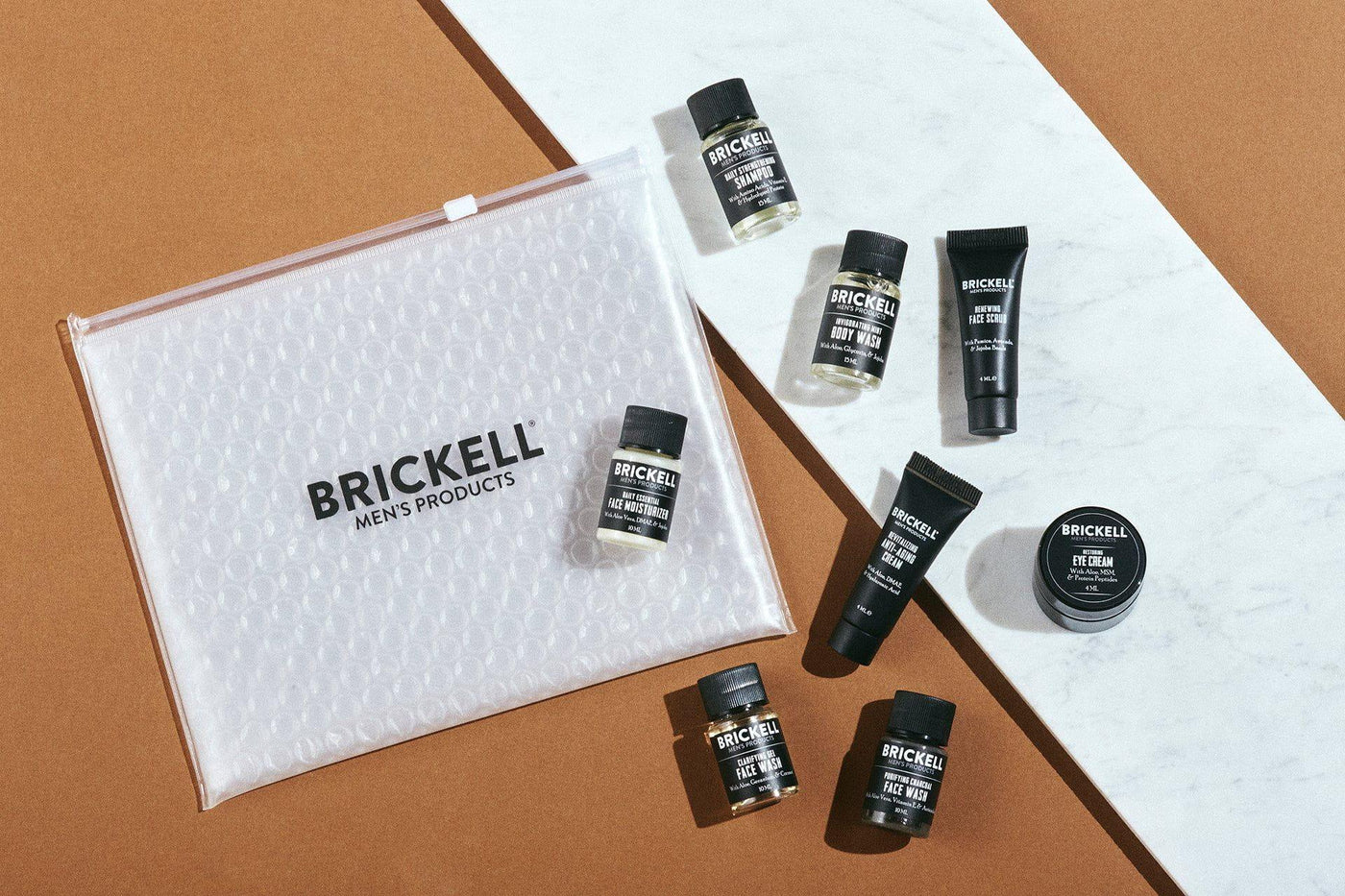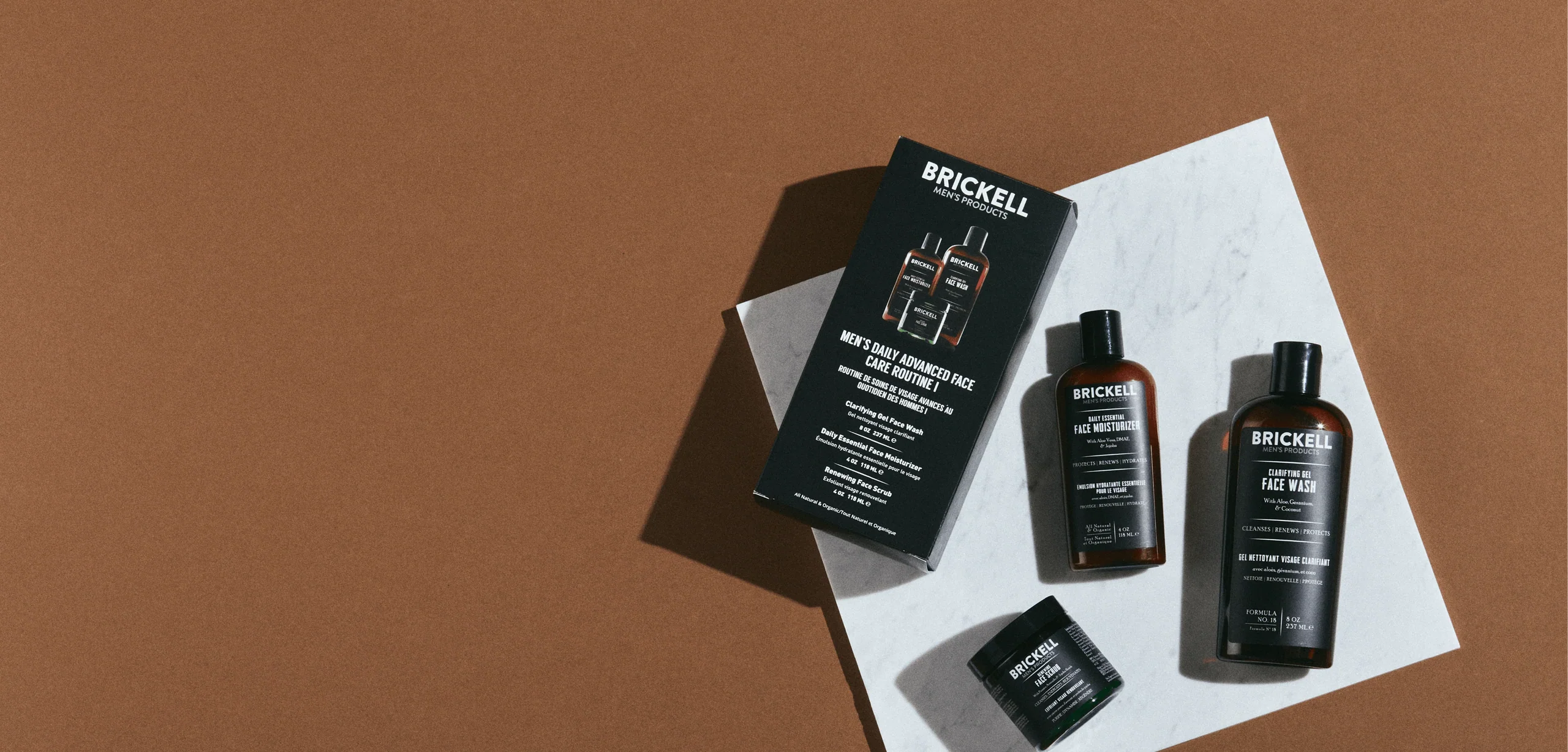The Grooming Manual
Retinol for Acne Scars: What Are the Benefits?

Can you use retinol for acne scars? Retinol is one of the best anti-aging ingredients and is found in many skincare products. It's proven to increase cellular turnover, boost collagen production, and contribute to smoother skin. But what about its effect on acne scars?
If you want to use retinol for acne scars, first consider the pros and cons. Be sure that it's right for your skin and will help achieve the results you're looking for. Here's everything you need to know.
What Is Retinol?
Retinol is a form of vitamin A that's used in many over the counter and prescription skincare products. It's safe to use in low concentrations but it's important to slowly increase how often you use retinol in order to prevent irritation.
How Does Retinol Work?
Retinol works by increasing cellular turnover and boosting collagen production. This results in smoother, brighter skin with reduced wrinkles and fewer signs of photoaging. That's why it's the featured product in one of our most powerful anti-aging products - Retinol Face Moisturizer Cream.
Benefits of Retinol for Acne Scars
Retinol is often used as an acne treatment to reduce inflammation and swelling. But what about retinol for acne scars that are already there?
About 80-90% of people who have acne scars have atrophic scars. These are caused by collagen loss. Retinol for acne scars of this kind is proven to be highly effective. That's because it directly addresses the issue by boosting collagen production. In fact, researchers have found that treatment with topical retinoids "increases dermal procollagen and collagen synthesis and hence may provide some benefits in preventing scar development and potentially reduce the extent of scar formation that is in progress." In one small study of 35 individuals with varying levels of acne scarring, 91.4% saw improvements after a treatment regimen that combined retinol with glycolic acid.
Early Treatment Is Best
Retinol for acne scars is most effective when used early in the scarring process. The longer you've had acne scars, the less dramatic your results will be. However, that's no reason to give up. Using retinol regularly will progressively diminish the severity of your acne scars by reducing discoloration and pigmentation issues that make your scars stand out.
How to Use Retinol for Acne Scars
The key to using retinol for acne scars is to start slow and, little by little, increase the amount of retinol you use on your skin. If you notice any irritation, flaking, or redness, take a break and wait to use retinol cream - like our Retinol Face Moisturizer Cream - again until your skin has recovered. If you continue to experience irritation, discontinue use and speak with you dermatologist.
Start Slow with Retinol
When you first start using retinol for acne scars, you might be excited about seeing results and want to use retinol every day. But that's a bad idea.
Especially when you first start using retinol on your skin, it's important to go slow and allow your skin to develop a healthy tolerance to this ingredient. If not, you could end up with irritation and retinol burn. Instead, start with retinol just two to three times per week at the most. After a few weeks, you can increase that to every other day or more so long as your skin is reacting well.
Increase Retinol Use Cautiously
Each time you increase how often you use a product like our Retinol Face Moisturizer Cream, be cautious and take stock of how it affects your skin. Are you noticing smoother, brighter skin? Or is retinol use leading to redness, irritation, and flaking? Instead of anxiously moving forward with a large concentration of retinol that could cause problems for your skin, be patient and intentional as you use this ingredient.
Prevent Retinol Irritation
As you get smoother, brighter, less acne-scarred skin from retinol, keep in mind these methods for reducing and preventing retinol:
- Only apply retinol at night
- Use SPF during the day
- Apply retinol to dry skin
Reduce Your Acne Scars with Retinol
When used consistently and appropriately, retinol is an excellent treatment for acne scars. It effectively reduces the severity of discoloration and the uneven texture of scarring. Though you may not be able to totally eliminate your scars, regular retinol use can make a big difference and help you achieve your skincare goals.

